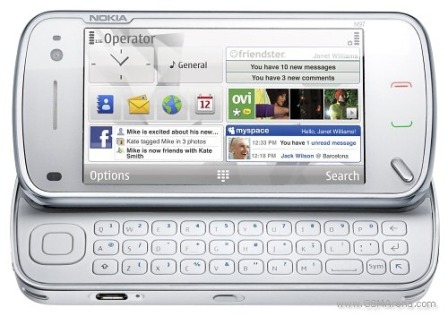 N
Nokia's Symbian operating system is set to lose its hold on India, where it has an estimated 60 per cent market share.
That's the likely fallout of the biggest handset maker in India announcing collaboration with Microsoft to launch Windows-based mobile devices.
Google's mobile operating system, Android, is Symbian's closest competitor.
According to technology market intelligence firm IDC, smart phones on the Android platform comprised 9 per cent of the Indian market in the third quarter of 2010, up from 2.9 per cent a year earlier.
Technology research firm Gartner expects manufacturers like Samsung to launch a whole range of budget devices that will drive Android into mass market segments.
Other players such as Sony Ericsson, LG and Motorola plan similar strategies.
While Nokia expects to sell around 150 million Symbian devices globally in the next two years, it will progressively transition smart phones to the Windows platform.
D Shivakumar, Nokia's country head, insists this should be seen as a positive move. "Windows Phone is a good smart phone platform and we see it appropriate for premium devices priced at, say, $300 (around Rs. 13,500) and onwards," said Shivakumar.
Nokia acquired Symbian in December 2008 and since then has become the biggest contributor to Symbian's code, as it owns the development resources for both the Symbian OS core and the user interface.
Nokia says it will continue to offer Symbian Series 30 and Series 40 devices at the low end of its range.
At the same time, the company is not excluding the possibility of offering Windows Phone devices in the lower price segment in future.
Shivakumar reiterates that the company is not entirely dumping the Symbian or MeeGo (created by Nokia with Intel) OSes.
"You will see the first MeeGo-based phone in 2011 and we will continue to build Symbian devices for the lower end of the market. But there's nothing to stop us from using the Windows platform for lower cost handsets, too" said Shivakumar.
In India, IDC estimates Nokia's share of the handset market has slid to 30 per cent from about 70 per cent just 5 years ago.
"Markets like India will continue to embrace cheaper devices and, hence, premium-priced Windows handsets might not show an uptick for Nokia in India as the older Symbian-based devices," said Naveen Mishra, an IDC analyst.
Anshul Gupta, Gartner's principal research analyst, agrees. He said that Nokia is likely to retain its focus on the Symbian platform in emerging markets like India, where cheaper devices constitute a bulk of sales.
"Windows Mobile constitutes less than 1 per cent of the total handset market in India, which clocked sales of more than 155 million mobile phones. Nokia is unlikely to change the dynamics with Windows phones in the immediate future. It will be Symbian devices - both old and new like the Nokia N8 - that will drive sales for the company in 2011-2012 in emerging markets," said Gupta.
Analysts that
Business Standard spoke with say the first Nokia-Microsoft Windows 7 device could be launched as early as this year, but will be priced at a premium and will compete with touch screen devices such as Apple's iPhone and Samsung's Galaxy series.
In an open letter, Nokia CEO Stephen Elop and Microsoft CEO Steve Ballmer last week jointly announced: "Nokia will adopt Windows Phone as its primary smart phone strategy, innovating on top of the platform in areas such as imaging, where Nokia is a market leader."
Elop took over the reins of Nokia just six months ago from Olli-Pekka Kallasvuo, who stepped down after 30-years with the company. Elop previously headed Microsoft's business division.


 Nokia's Symbian operating system is set to lose its hold on India, where it has an estimated 60 per cent market share.
Nokia's Symbian operating system is set to lose its hold on India, where it has an estimated 60 per cent market share.